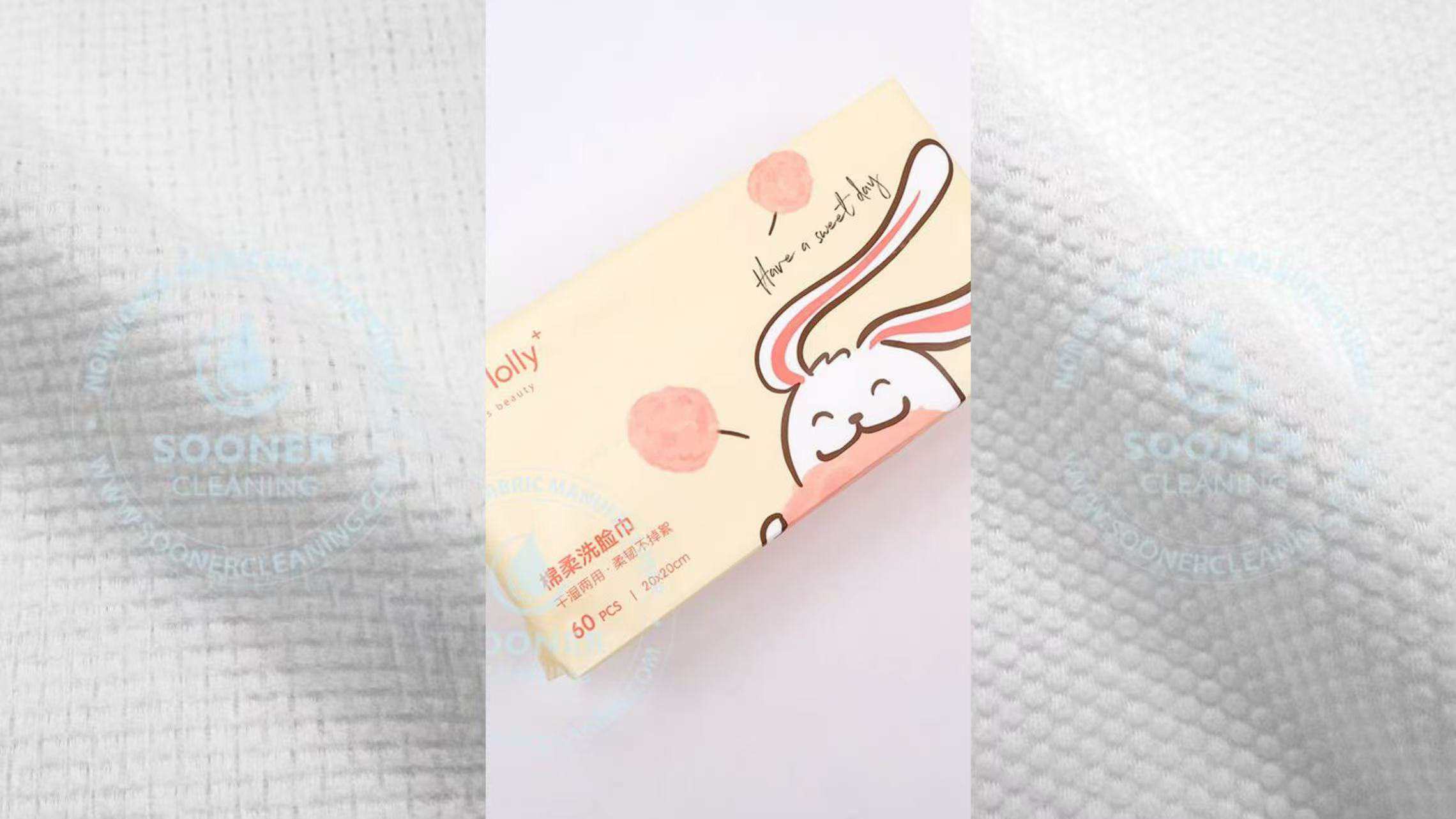The Global Skincare Market is Evolving – The Rise of Disposable Face Towels
As the global personal care and beauty industry advances, consumer focus on hygiene, safety and convenience continues to grow.
While traditional towels can be reused, they are prone to harbouring bacteria and odours in damp conditions, gradually failing to meet modern demands for high-standard skincare.
Disposable nonwoven face towels, with their cleanliness, softness, non-irritating properties, and single-use nature, are emerging as a favoured choice within global skincare brands and personal care supply chains.
Disposable Nonwoven Face Towels vs Traditional Towels — Comprehensive Performance Comparison
Item
|
Disposable Nonwoven Face Towel
|
Traditional Towels
|
Material
|
Nonwoven fabric (e.g., viscose + polyester fibres)
|
Cotton or blended yarns
|
Cleanliness
|
Single-use prevents cross-contamination
|
Multiple uses prone to bacterial residue
|
Softness
|
Gentle on skin, non-irritating
|
Hardens with prolonged use
|
Absorbency
|
Quick absorption and drying
|
Significantly affected by fibre ageing
|
Convenience
|
Lightweight and portable, ideal for travel, spas, salons
|
Requires washing and drying
|
Eco-friendliness
|
Biodegradable material options available
|
Water and energy intensive
|
Through these comparisons, it becomes evident that:
Disposable non-woven face towels offer distinct advantages in hygiene standards, user experience, and supply chain efficiency.
They are particularly suited for high-frequency replacement scenarios such as beauty salons, hotels, aviation, healthcare, and personal care brands.
From a production perspective—quality enhancement through non-woven technology
The core of disposable face towels lies in their non-woven fabric base.
Current mainstream materials include viscose and polyester.
Advanced spunlace technology interweaves fibres densely without chemical adhesives,
ensuring high strength, minimal linting, excellent breathability, and a skin-friendly feel.
For customers, the advantages of these materials lie in:
Flexible adjustment of grammage and composition according to application;
Support for OEM/ODM customisation (size, texture, packaging);
High production line automation with stable delivery cycles;
Suitability for export markets including personal care, hygiene, and hospitality supplies.
‘Clean + Sustainable’ Products
Demand for disposable non-woven facial tissues has risen steadily in European, American, Japanese and Korean markets in recent years.
This stems not only from consumer acceptance of the ‘hygiene equals safety’ principle, but also from the fact that
certain raw materials in non-woven tissues can be replaced with biodegradable fibres,
aligning with EU environmental standards (REACH) and sustainable procurement trends.
For foreign trade enterprises or brand buyers
selecting a reliable non-woven facial towel supplier enables faster capitalisation on the three major consumer trends: ‘environmental protection + beauty + convenience’. Disposable non-woven facial towels offer enhanced safety, greater efficiency, and significant market potential. Overall, they demonstrate strong advantages in:
personal skincare experience (softness, cleanliness, non-irritating),
supply chain management (easy storage, transport, low risk),
and export market expansion (environmental credentials and brand value-add).
Against the backdrop of global consumption upgrades in hygiene and beauty
soonercleaning's Disposable Nonwoven Face Towel stands as the ideal replacement for traditional towels. It embodies gentle skin care while representing the future international trajectory for personal care products.

